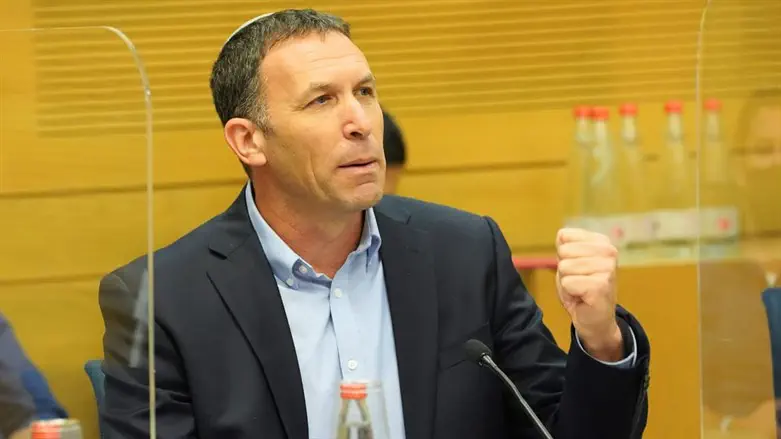
The long-awaited conversion outline developed by Religious Affairs Minister Matan Kahana has finally been published, and taking center place among its provisions is the option it grants local rabbis to establish their own conversion courts, with the potential of converting tens or even hundreds of thousands of Israeli citizens categorized as “zera Yisrael” – of partially Jewish descent, albeit not Jewish according to halachah (Jewish law).
The new outline, revealed on Wednesday by Israel Hayom, ostensibly leaves overall authority in the hands of the Chief Rabbinate and the official state conversion system, although it also grants considerable power to a new “rabbinical committee.”
Kahana intends to bring his plans to the Knesset for legislative approval within the coming weeks. According to reports, the outline has been developed with the close collaboration of senior rabbis from the Religious-Zionist sector, headed by Rabbi Haim Druckman, and including Rabbi Yaakov Meidan, Rabbi Ra”m Hacohen, and Rabbi Eitan Eizman.
“No one can argue that this is a Reform outline that will encourage assimilation,” Kahana said of his plans. “Some of the foremost rabbis of the Religious-Zionist sector have given it their approval and now they expect the Chief Rabbinate to adopt it.”
One of the main provisions of the new outline is the establishment of a “Local Rabbis Department” within the state conversion system, which will be in charge of overseeing the establishment of local rabbinical courts. In addition, a rabbinical committee will be created which will establish the procedures for the local rabbinical courts. One of the issues sure to ignite the most controversy will be that of enabling local rabbis to convert tens of thousands of minors, which is likely to be opposed by more conservative elements.
In order to retain the overall authority of conversions in the hands of the Chief Rabbinate, Kahana decided that the Chief Rabbis and the Rabbinate would be permitted to cancel appointments of religious conversion judges, by means of submitting a request to the rabbinical committee and advising it that the person in question should not have the authority to conduct conversions, due to having diverged from the official guidelines. Once the committee approves the request, the Chief Rabbinate will be able to take steps to remove the authority to convert from the offending party.